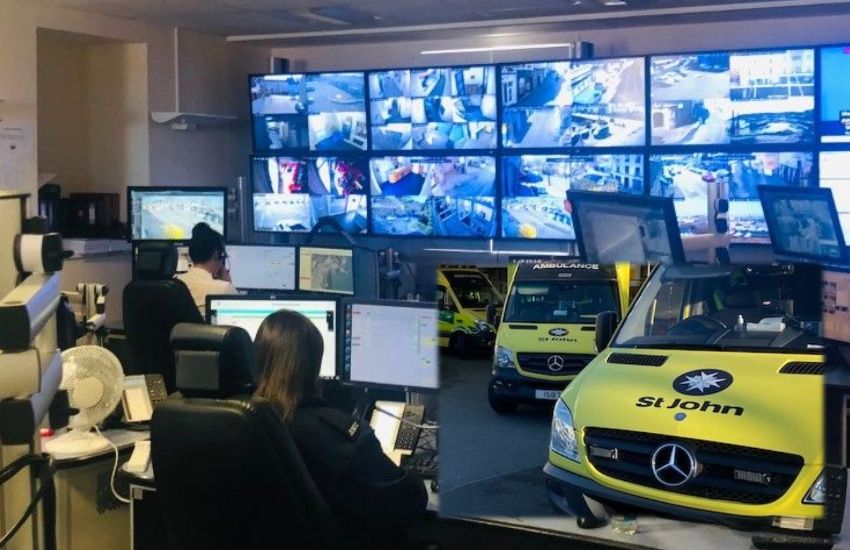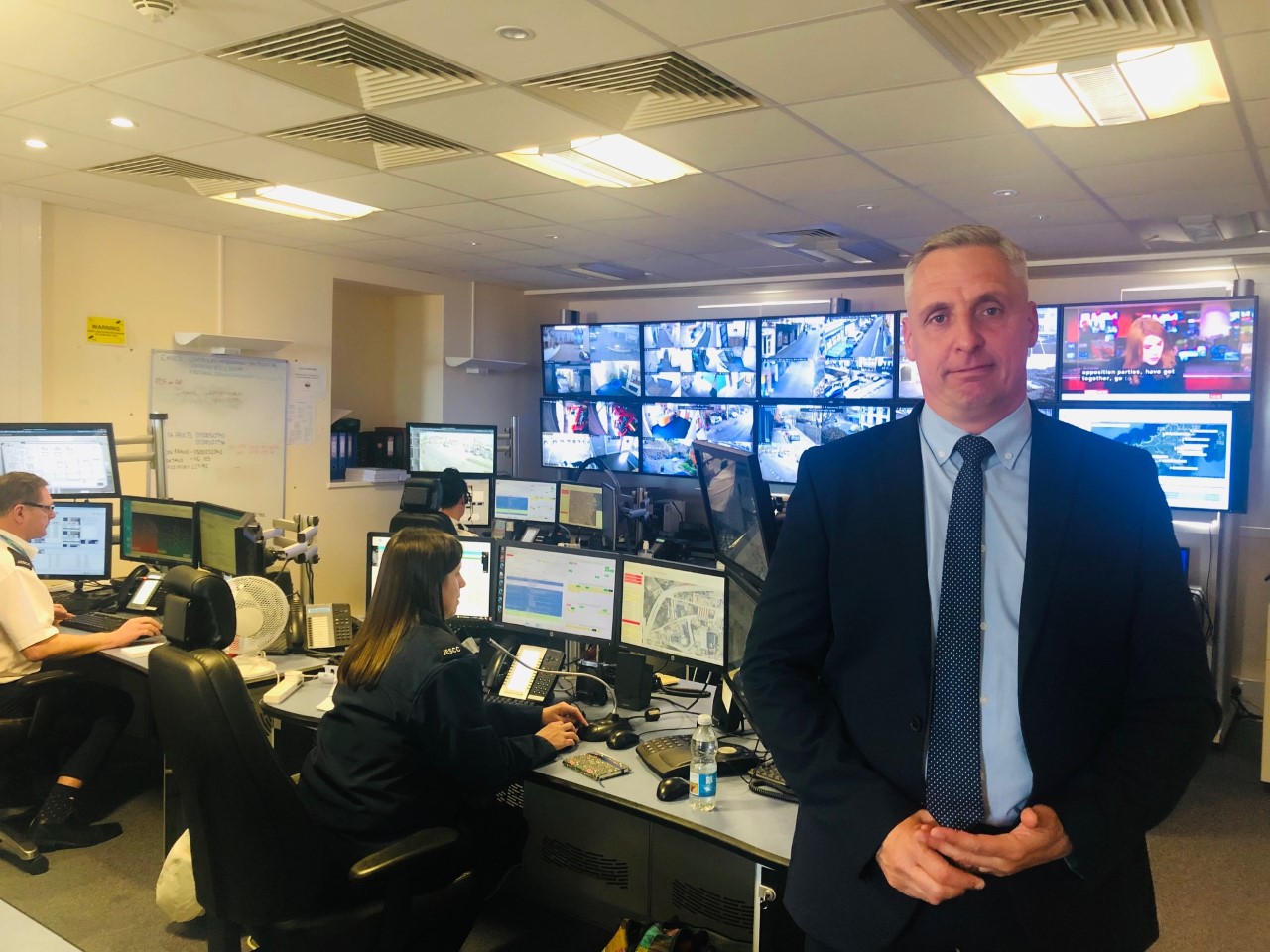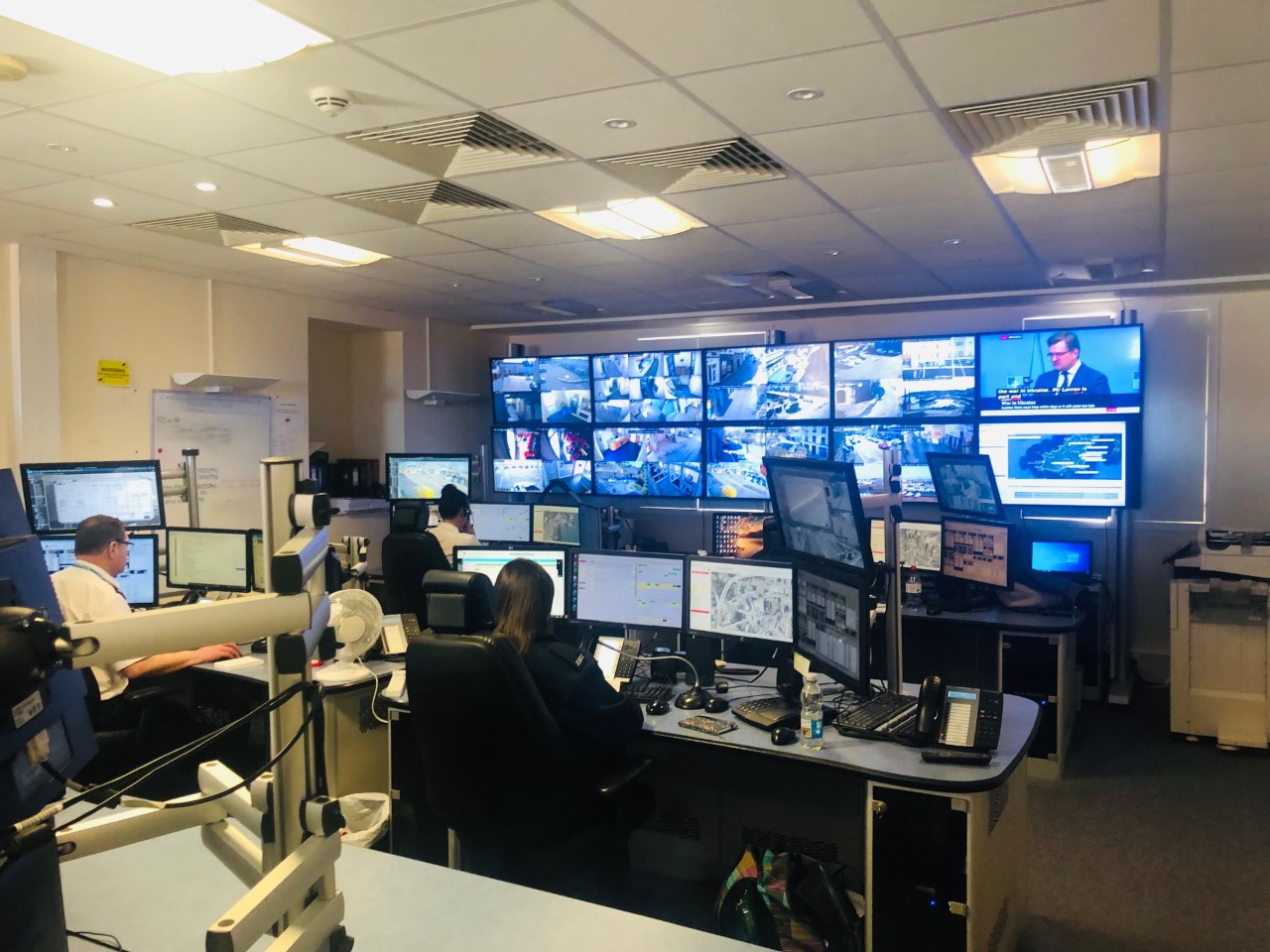


The Joint Emergency Services Control Centre (JESCC) has assured islanders that its triage system for calls ensures that "the fastest help reaches the people who need it most".
The ProQA system used by JESCC enables call takers to categorise the emergency through a series of questions, but the questions do not delay the dispatch of emergency vehicles.
JESCC Manager Karl Zierlinger said it was important for islanders to answer the questions from the call taker.
"We want to stress to all islanders that taking the time to answer the necessary questions does not delay any emergency service from reaching them," he said.

Pictured: JESCC Manager Karl Zierlinger.
Mr Zierlinger continued: "Vehicles are dispatched immediately in emergencies and, very often, the vehicle will have arrived with the caller while they are still on the phone to the call handler. We receive between 80 and 100 calls per day on average and those calls are prioritised by the level of the emergency.
"We completely understand that people in emergency situations may be apprehensive to spend time answering questions, but those questions are in place to assist you."
Mr Zierlinger said that the JESCC uses a "world class" call taking system.
"Call takers will be able to work through the series of questions and provide the caller with first aid advice while they wait for an ambulance," he said.
"The system is used all over the world and it works extremely efficiently to triage calls to ensure that help reaches the people who need it most in the fastest possible time."

Pictured: JESCC receives 80 to 100 calls per day.
Head of Operations for the Emergency Ambulance Service, Dean De La Mare, said the triage system was "absolutely necessary".
"The ambulance service receives around 20 emergency calls per day and it is impossible to predict when the peak times will be," he said.
"We have seen an increased demand for ambulance services, which is partly due to the ageing population. The most common call we receive is from elderly people who have had a fall, but we also receive calls for people who are in life threatening situations. We have to prioritise the calls so that people who need urgent medical attention are seen before people who may, for example, need assistance getting up but who are not injured."
Mr De La Mare said that target response times for ambulances are dependent on the priority level of the call.
"For category one calls, which are the highest priority, we have a target to be at the scene within eight minutes. We achieve this more than 75% of the time," he said.
"For category two calls we aim for 14 minutes and, again, we usually meet that target. Each call can take between an hour to an hour and half on average from being dispatched to taking the patient to the hospital if needed. This means that some non-priority calls sometimes have to wait around two hours but those calls can be recategorised if the situation worsens and we will respond accordingly."
Mr Zierlinger said that JESCC call takers were fully trained.
"Call takers receive training for the system, which is clinically led and designed. Call takers play a vital role in ensuring help reaches those who need it as quickly as possible; the control room is where all the hard work starts," he said.
JESCC is currently recruiting for up to six call takers.
Comments
Comments on this story express the views of the commentator only, not Bailiwick Publishing. We are unable to guarantee the accuracy of any of those comments.